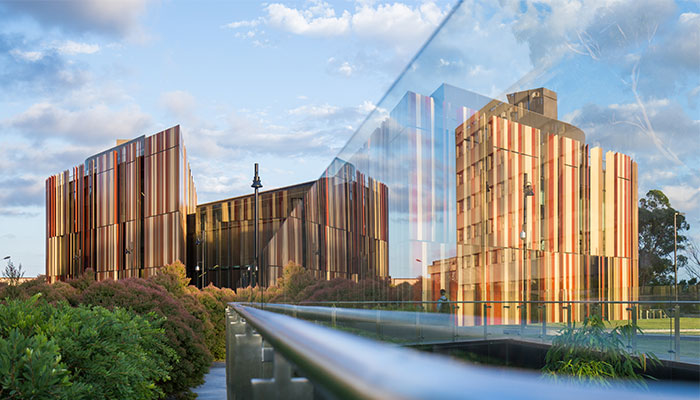Recent budget cut announcements and related changes to the university sector have had a significant ripple effect within the academic community. To address this, the Academic Work Cultures and Wellbeing: Strategies for Transformation conference will bring together academics from a range of research fields and disciplines, to reflect upon the state of working life in higher education today, and to explore practical solutions for maintaining vitality in the academic context.
“While much has been written about the vast changes that have occurred within the sector in the last decade or so, there has been comparatively little research on the impact of such changes on the health and wellbeing of academic staff,” says conference organiser Associate Professor Nikki Sullivan.
“Stress levels of academic staff are considerably higher and wellbeing levels significantly lower than the average, and everyday encounters with staff who report things like exhaustion, stress, overload, guilt and feelings of out-of-placeness, fraudulence and fear of exposure within the contemporary academy are increasingly prevalent.”
Work-related stress, anxiety, depression and ill-health are costly in terms of the toll they take on individual staff, their university and the nation. A 2008 report by Medibank Private claims that workplace stress is costing the Australian economy $14.81 billion per year, that stress-related presenteeism and absenteeism directly cost employers $10.11 billion per year, and that the number of stress-related claims doubled between 1996-2004.
“These figures do not show the hidden financial cost of re-staffing and reskilling, though,” says Sullivan, “Nor, perhaps more importantly, do they show the social, cultural, and intellectual cost of universities losing highly trained staff whose research and teaching makes a profound contribution to the future of the nation. It also says nothing about the toll taken on the lives of academics themselves.”
The conference has been designed to allow both academic and professional staff to workshop ideas and strategies that productively tackle ongoing changes to the sector.
The schedule for the two-day conference includes a mix of panels and plenary addresses on different topics around academic wellbeing.
Event details:
May 2 and 3, 2013
Building C10A, Macquarie University, North Ryde
For more information and to register, visit the event website.
“While much has been written about the vast changes that have occurred within the sector in the last decade or so, there has been comparatively little research on the impact of such changes on the health and wellbeing of academic staff,” says conference organiser Associate Professor Nikki Sullivan.
“Stress levels of academic staff are considerably higher and wellbeing levels significantly lower than the average, and everyday encounters with staff who report things like exhaustion, stress, overload, guilt and feelings of out-of-placeness, fraudulence and fear of exposure within the contemporary academy are increasingly prevalent.”
Work-related stress, anxiety, depression and ill-health are costly in terms of the toll they take on individual staff, their university and the nation. A 2008 report by Medibank Private claims that workplace stress is costing the Australian economy $14.81 billion per year, that stress-related presenteeism and absenteeism directly cost employers $10.11 billion per year, and that the number of stress-related claims doubled between 1996-2004.
“These figures do not show the hidden financial cost of re-staffing and reskilling, though,” says Sullivan, “Nor, perhaps more importantly, do they show the social, cultural, and intellectual cost of universities losing highly trained staff whose research and teaching makes a profound contribution to the future of the nation. It also says nothing about the toll taken on the lives of academics themselves.”
The conference has been designed to allow both academic and professional staff to workshop ideas and strategies that productively tackle ongoing changes to the sector.
The schedule for the two-day conference includes a mix of panels and plenary addresses on different topics around academic wellbeing.
- Panels include: ‘Visible and Invisible Work’, ‘Law and Neoliberalism in the Academy: collegiality, wellbeing and resistance’, ‘Connecting Colonialism, Neoliberalism, Health and Knowledge’
- An opening plenary address by Richard Hil, author of Whackademia, followed by a range of international keynotes, including:
- ‘It’s the economy, stupid !’ The European universities, the ‘Bologna Reforms’ and Neo-liberalism Chris Lorenz,’ VU University, Amsterdam
- “Work, life, and im/balance: policies, practices and performativities of academic well-being,” Sue Saltmarsh, Australian Catholic University & Holly Randall Moon, University of Otago, New Zealand
- “What was a PVC Staff and Diversity for? Some Reflections, Post-Retirement, on the ‘Positive Working Environment’ and ‘Being the Equality Champion’ at Cardiff University (2007-12),” Terry Threadgold, Cardiff University, UK
- “Work and wellbeing in academics – meanings, models and solutions,” Gail Kinman, University of Bedfordshire, UK
Event details:
May 2 and 3, 2013
Building C10A, Macquarie University, North Ryde
For more information and to register, visit the event website.



